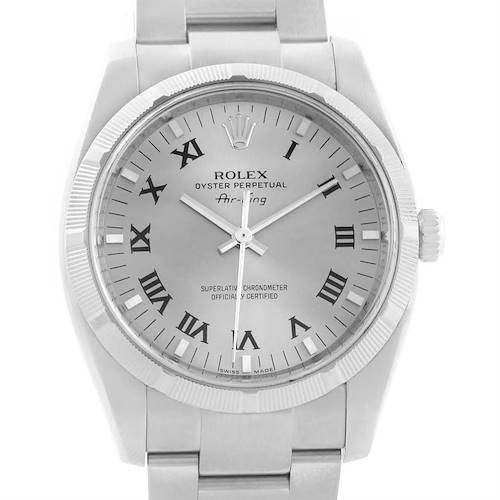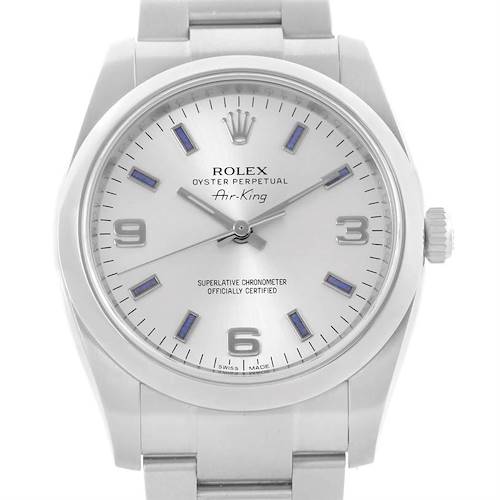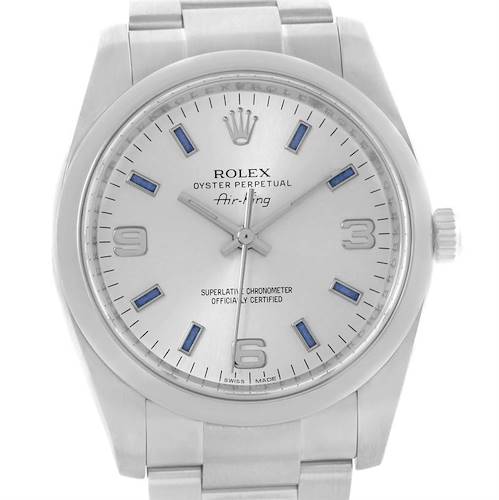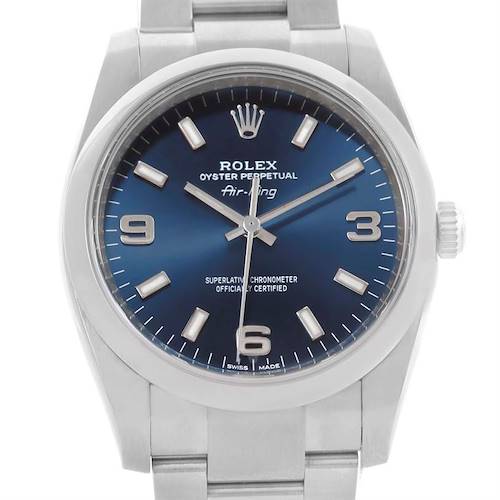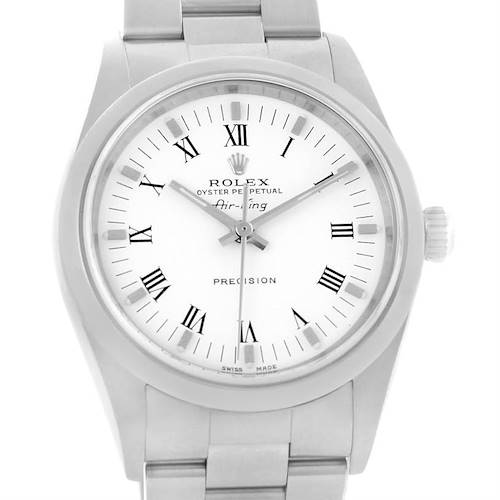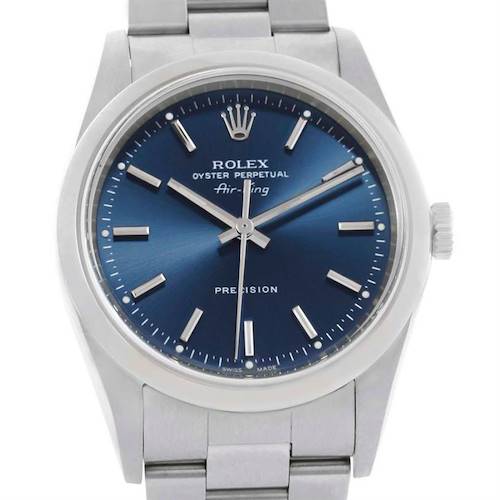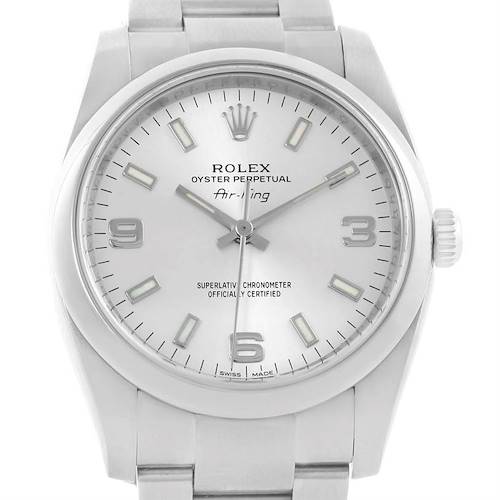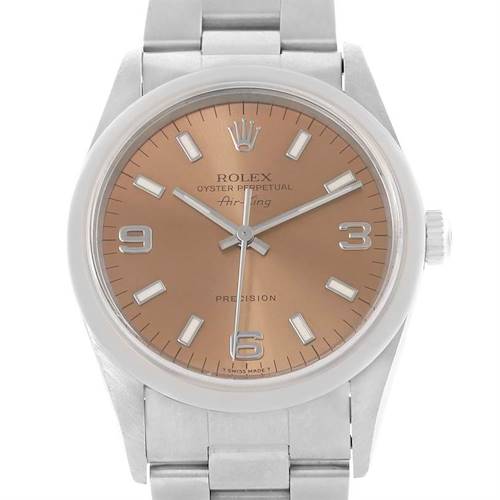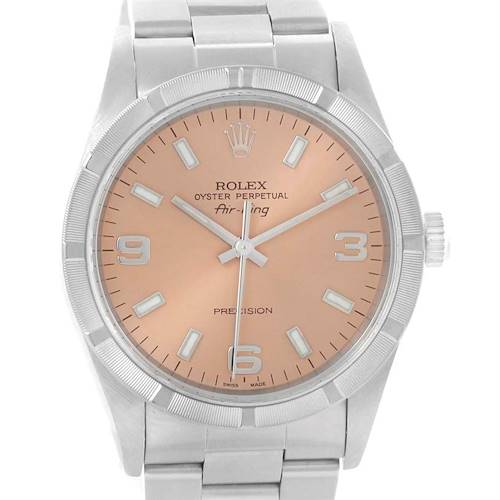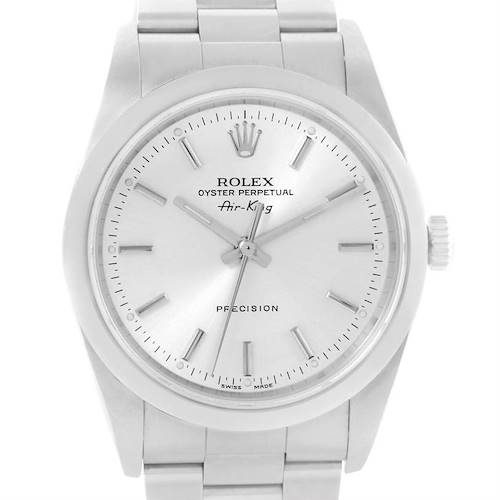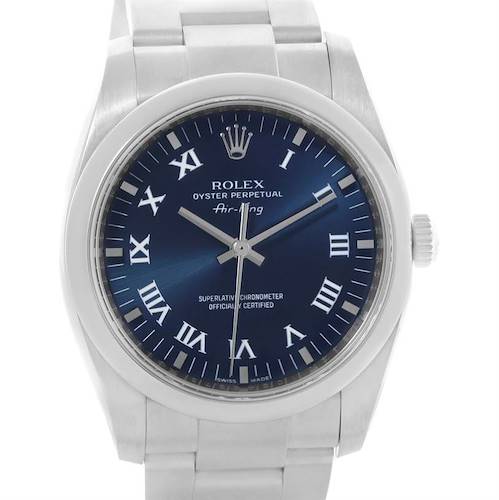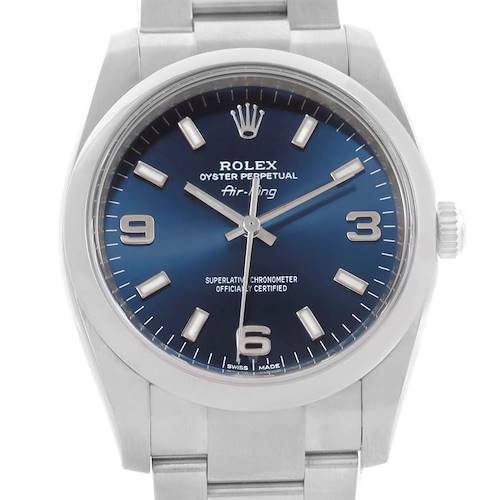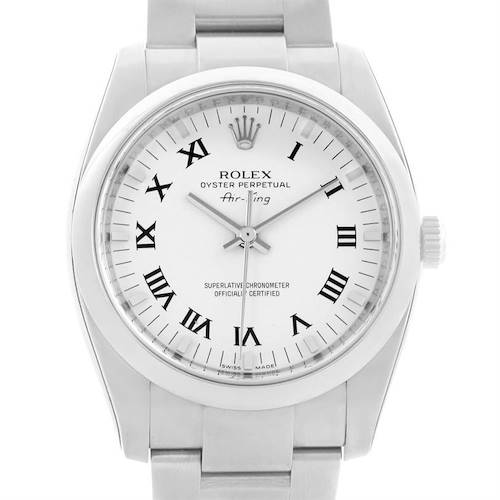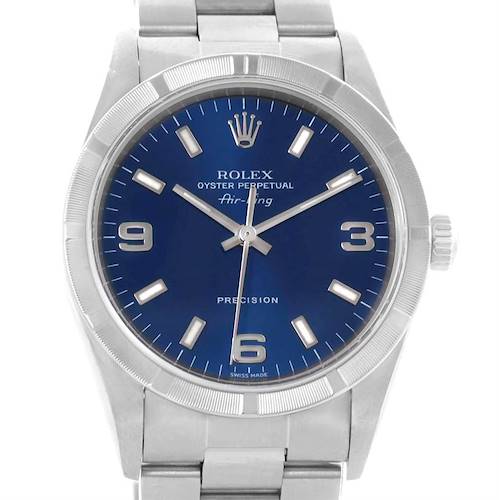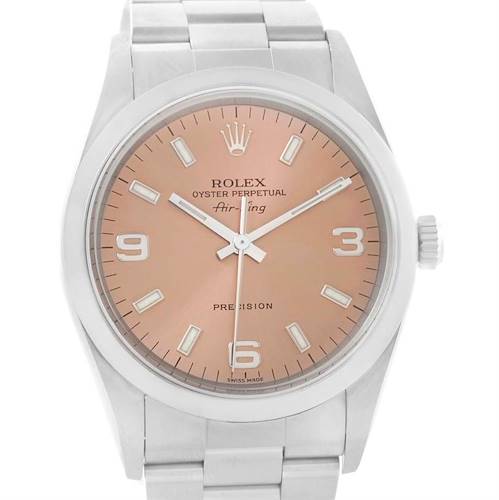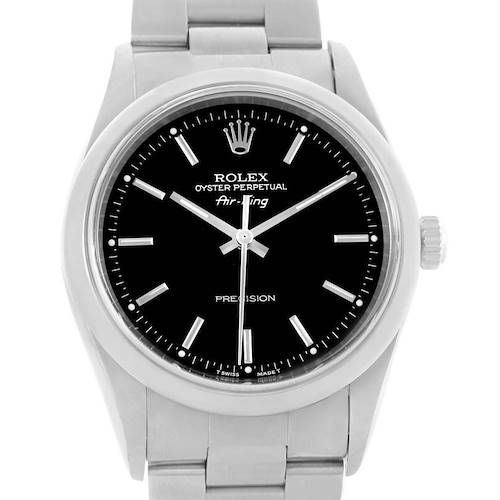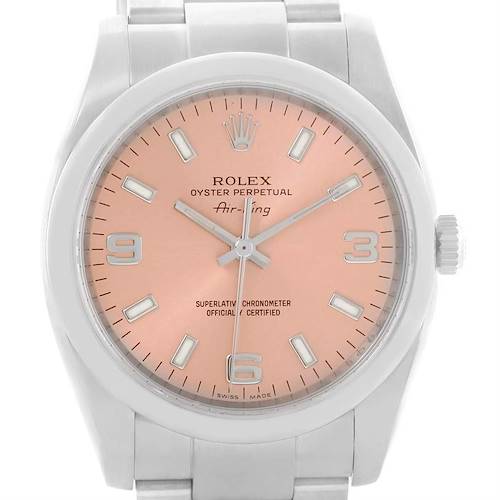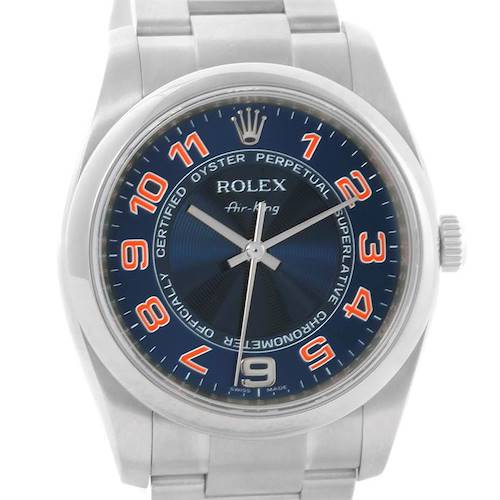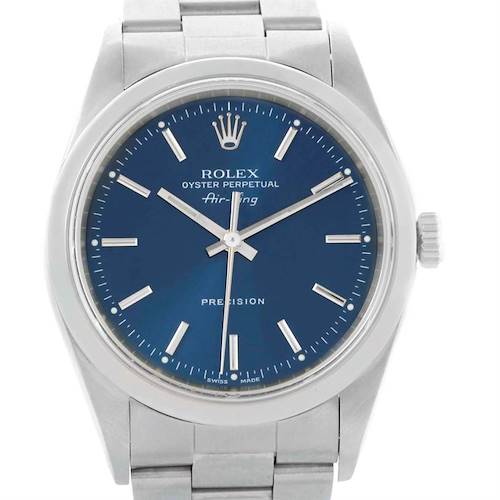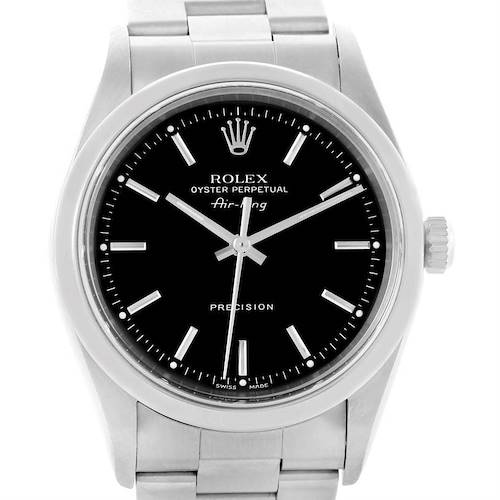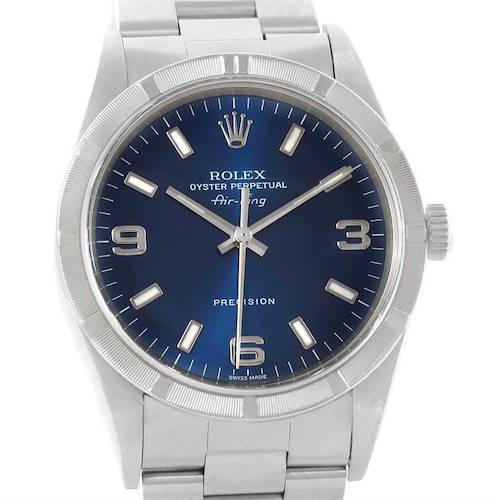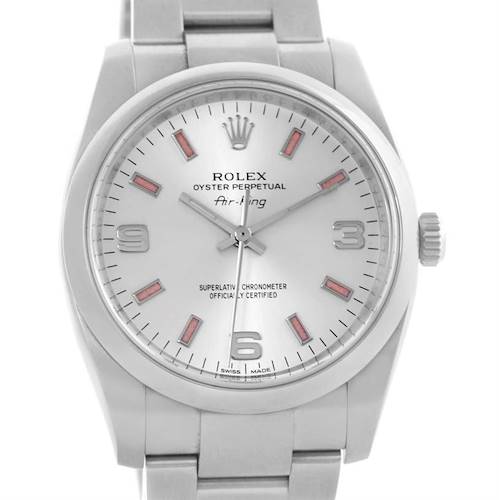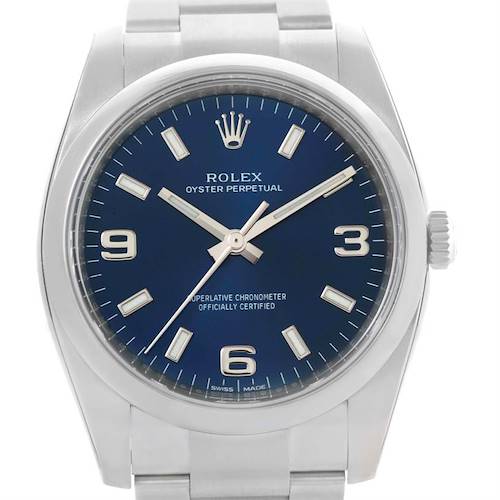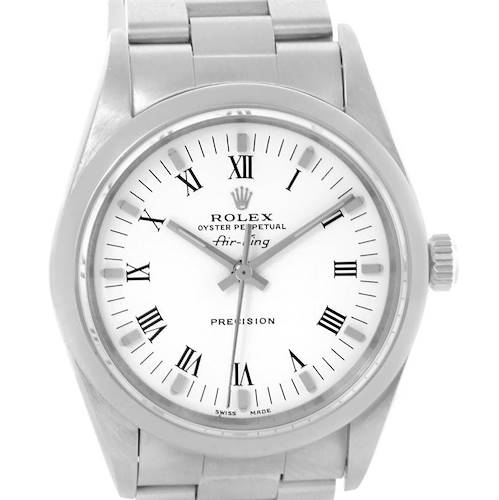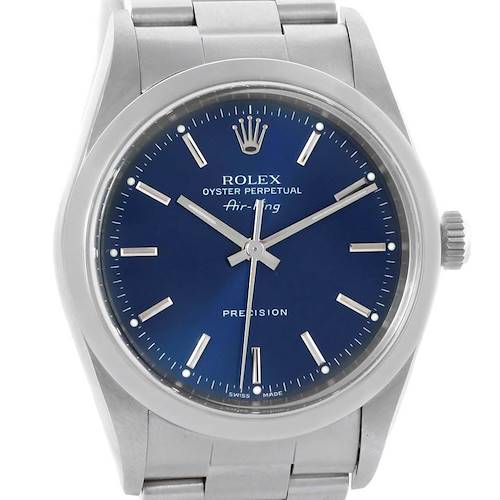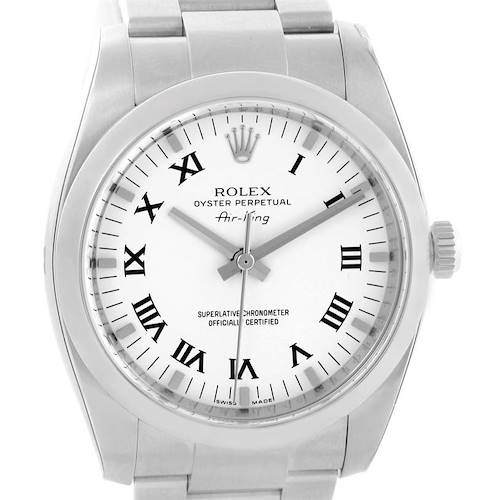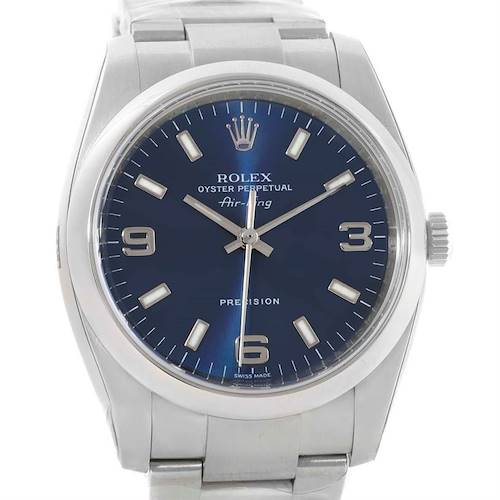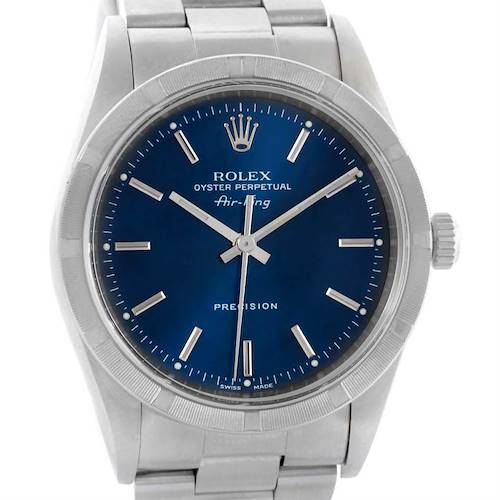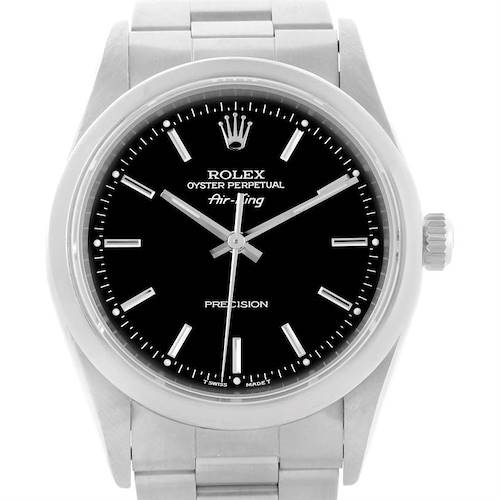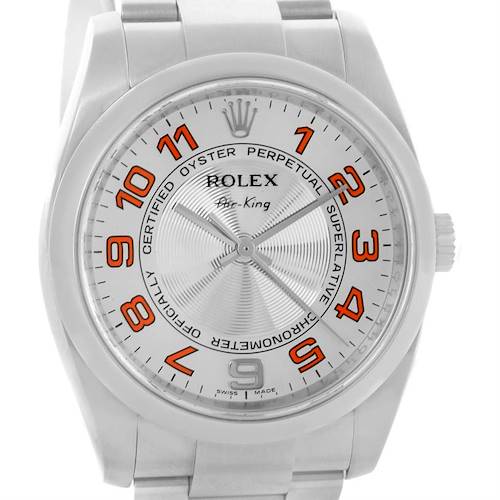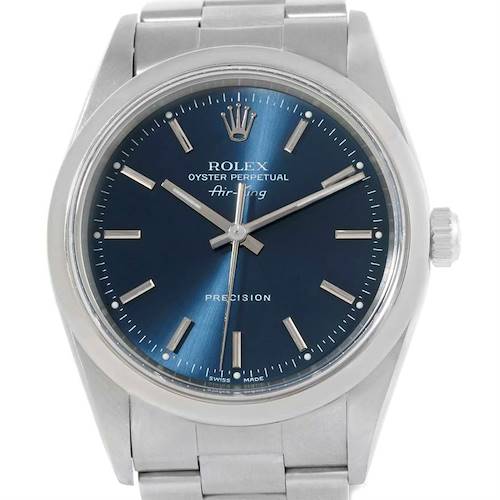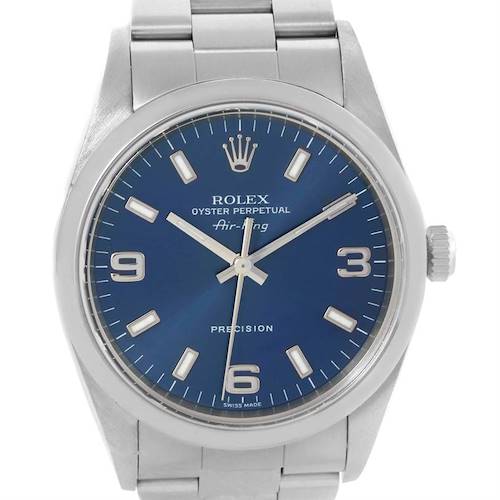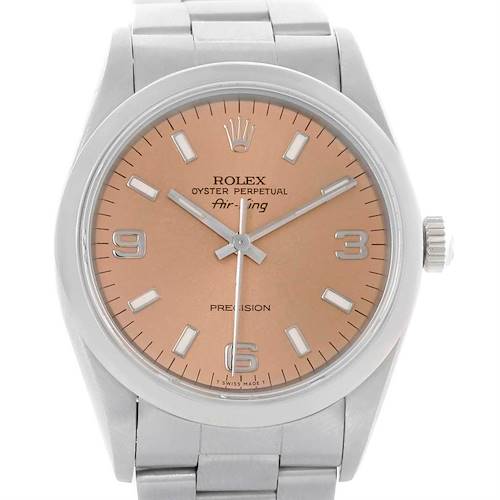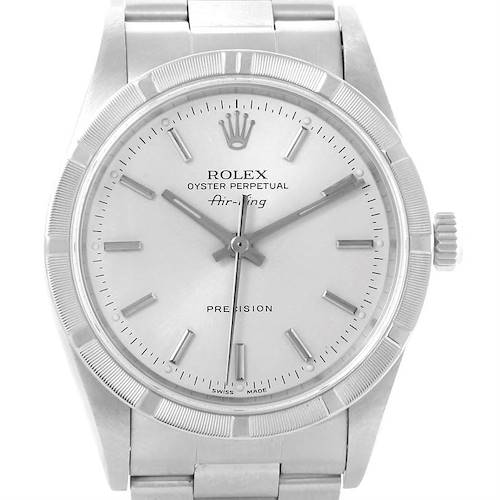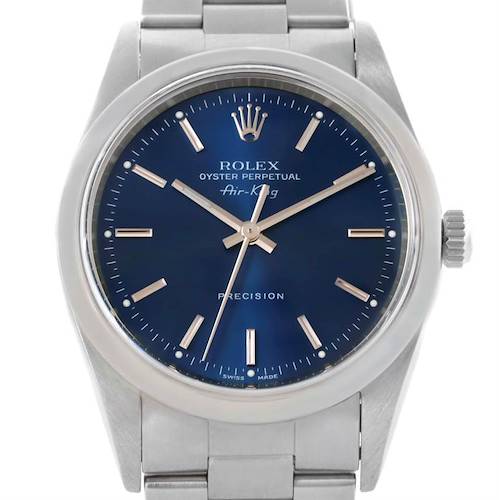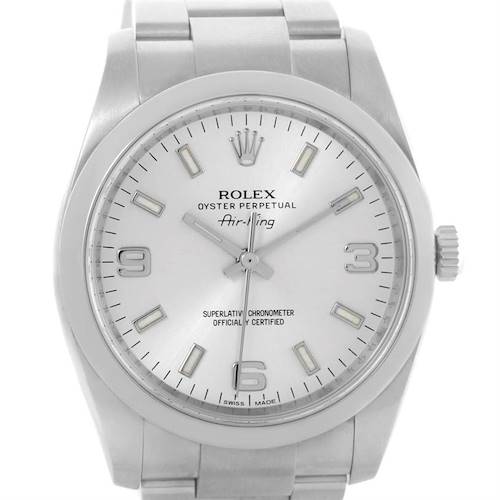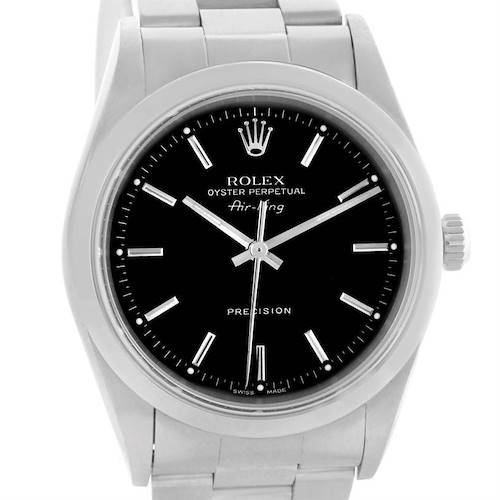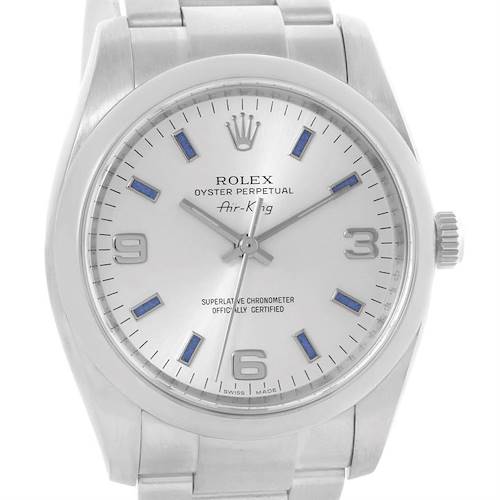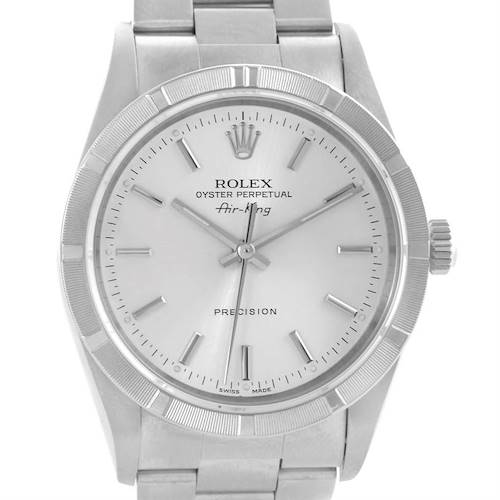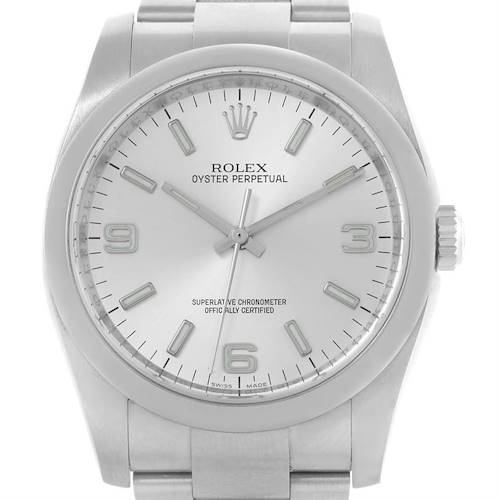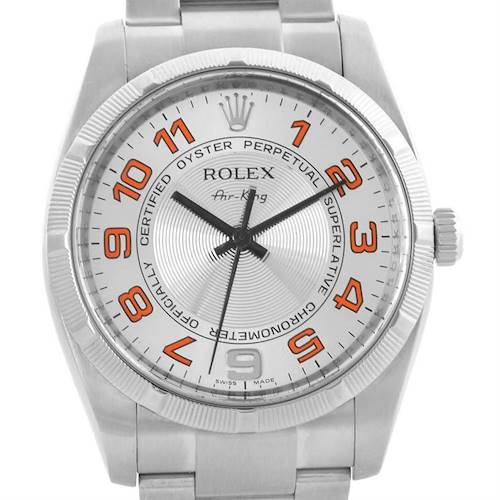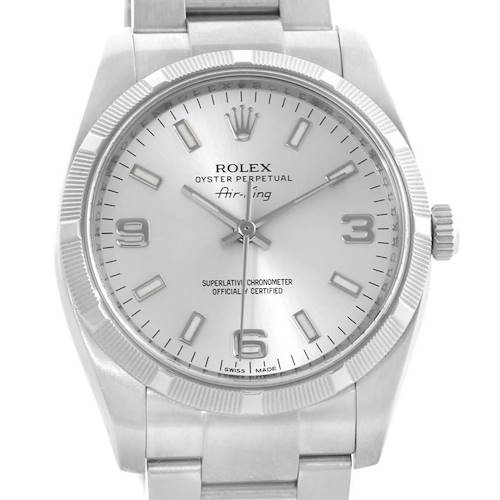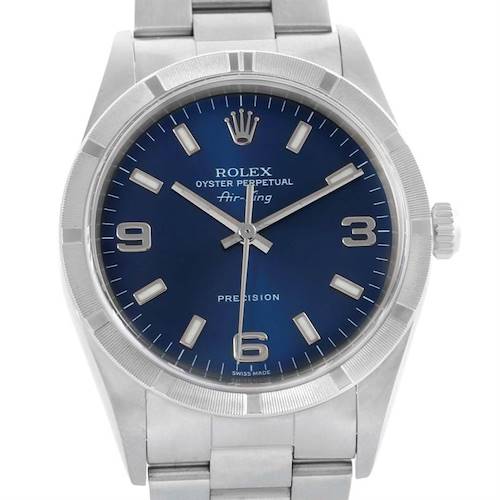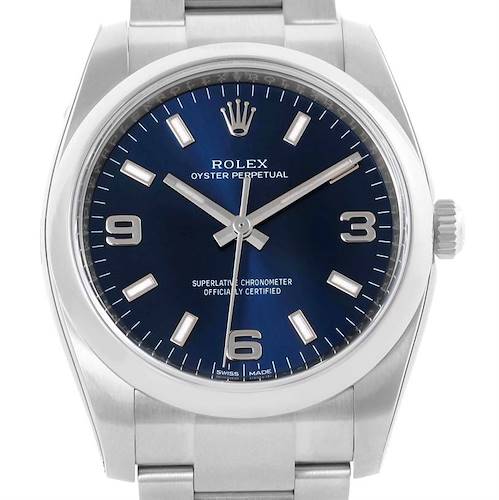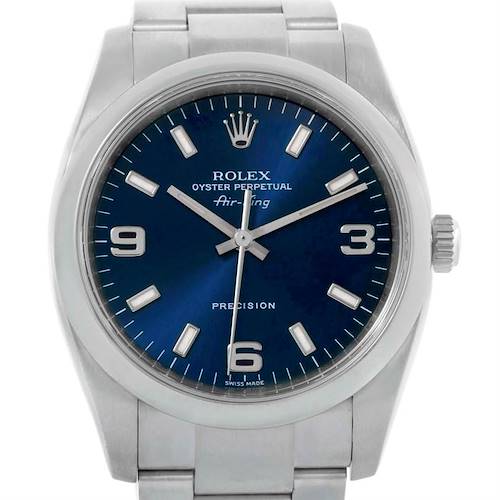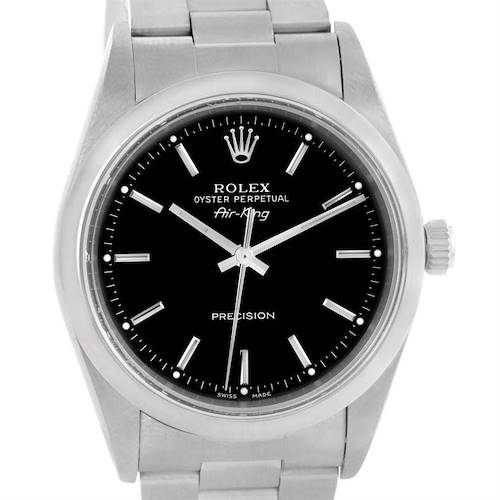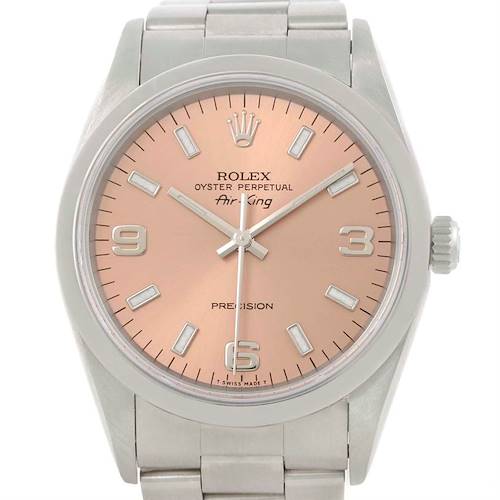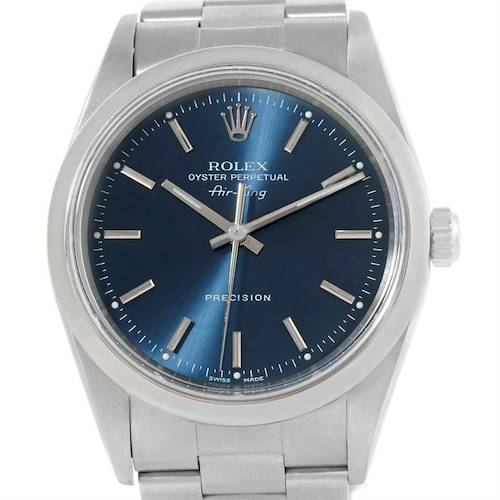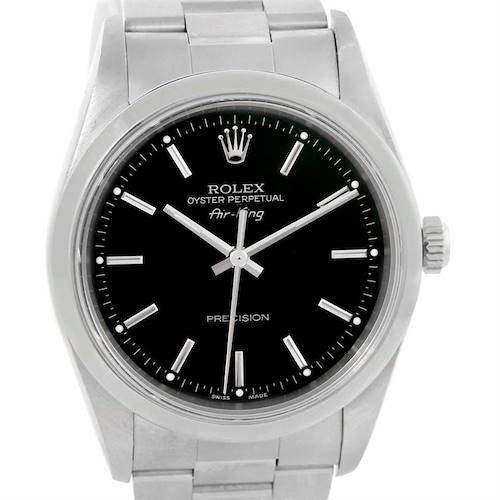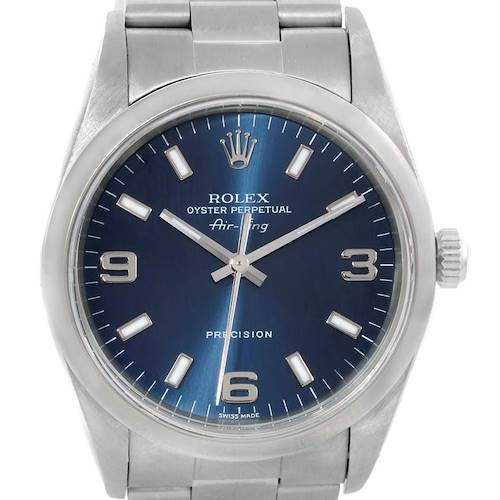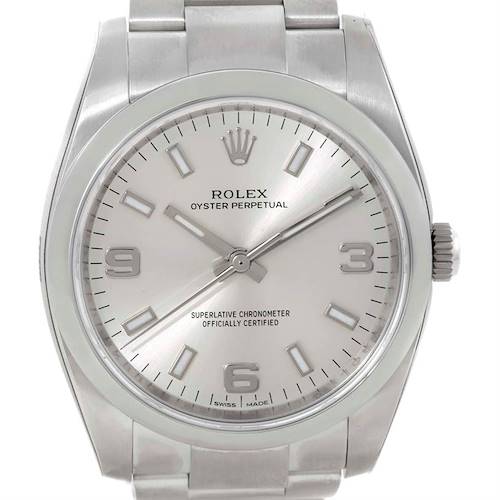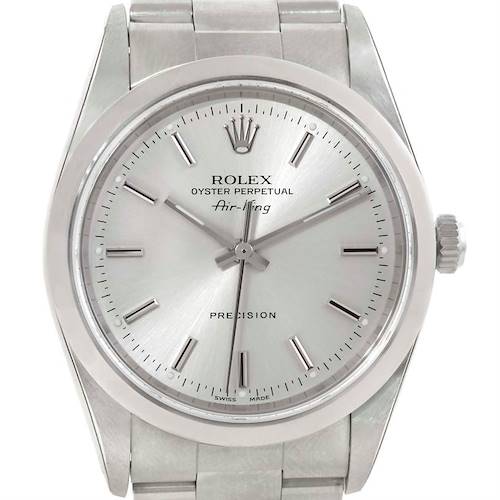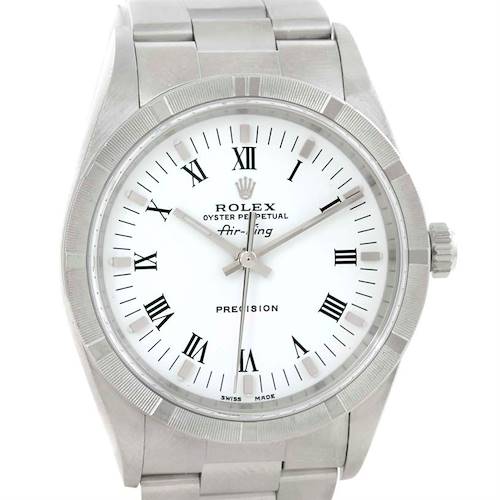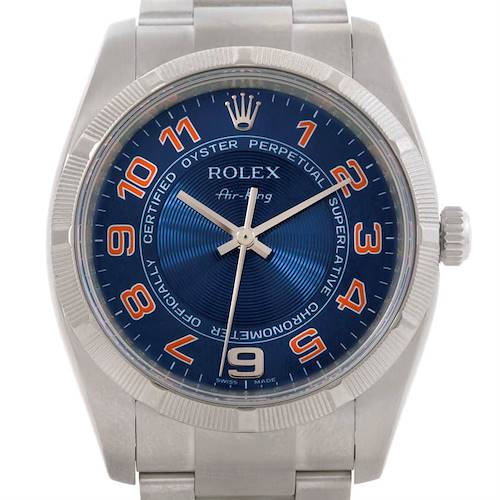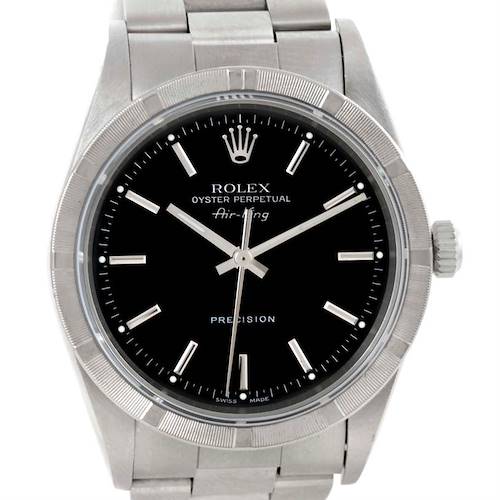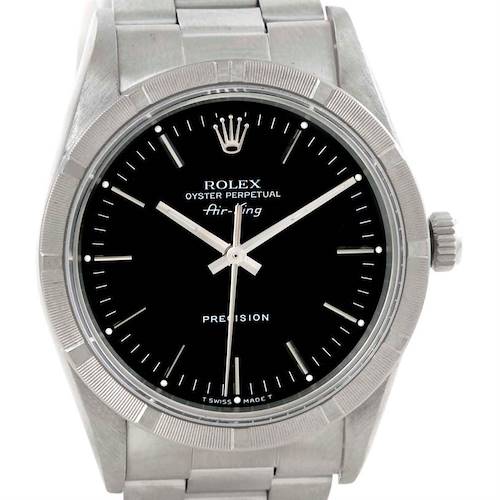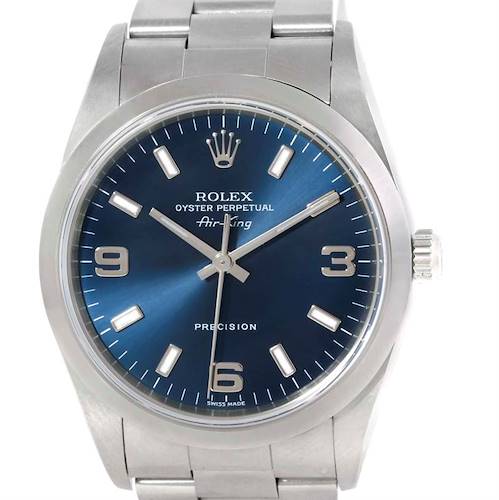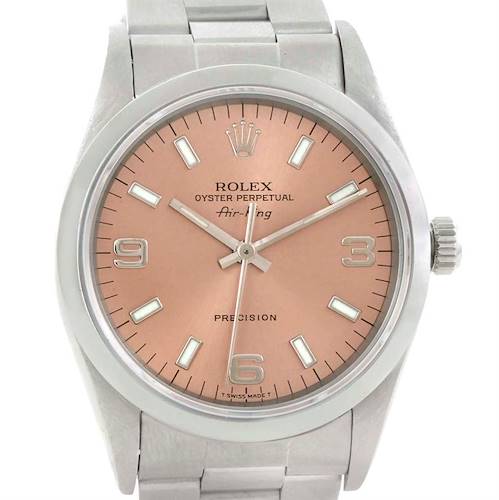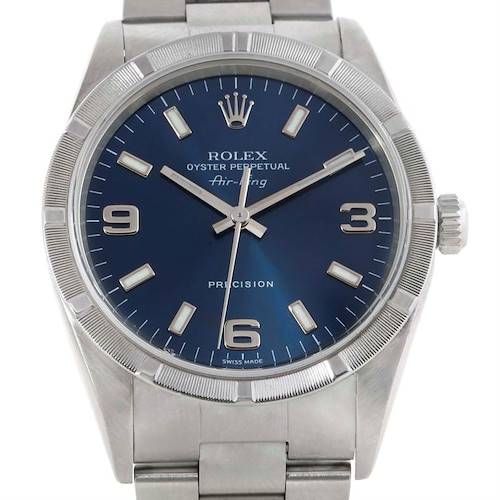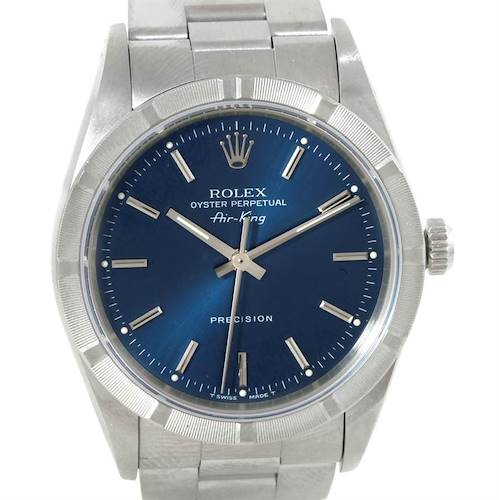- CALL US (404) 814-1814
- LIVE SUPPORT
- EMAIL US
-
WISHLIST (0)
-
CART(0)
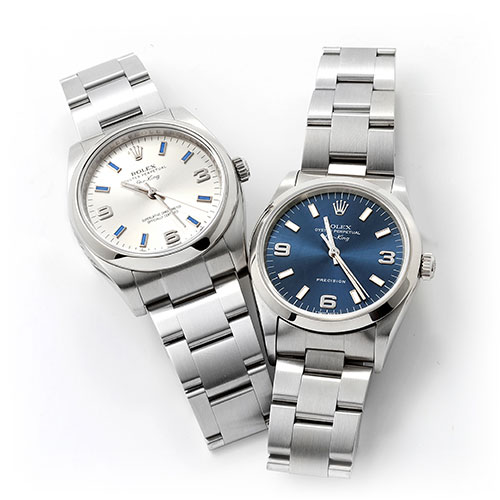
Men's Air-King | Rolex Watch Collection
1,489 MATCHES FOUND
Rolex Air-King Collection
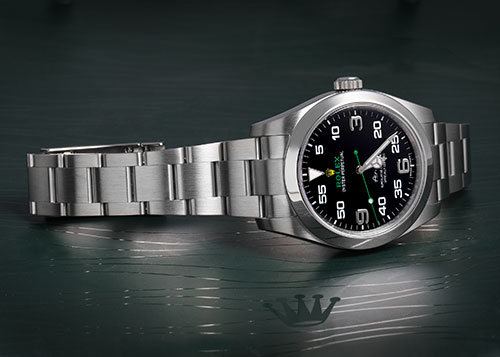
The Rolex Air-King is a collection of sporty and elegant timepieces inspired by classic pilot’s watches. Introduced in 1945, the Air-King was part of a larger collection of watches designed by Rolex to honor the British Royal Air Force and its pilots after the World War II.
The key characteristics of early Air-King watches are its steel construction, 34mm case which was large at the time, and a simple dial arrangement that is easy to read during flight. With its minimal design and robust construction, it served as one of Rolex’s entry-level models for decades.
The current collection is limited to a single model introduced in 2016. Inspired by flight instruments, the ref 116900 merged the versatile design of modern steel Rolex watches with the aesthetics of cockpit instruments. Even with the bolder design, the current Rolex Air-King continues to be a viable entry to the world of Rolex and ideal for wearing in daily life. Explore our wide selection of vintage and modern Rolex Air-King watches at SwissWatchExpo.com.
A BRIEF HISTORY OF THE ROLEX AIR-KING COLLECTION
During the second world war, the British Royal Air Force pilots saw the need use their own personal Rolex watches in place of their less reliable, standard issue watches.
Rolex caught wind of this and produced a series of “Air”-themed watches for the RAF pilots. The series consisted of the Air-Lion, Air-Tiger, Air-Giant and Air-King, all time-only models with Oyster cases and manual-wind movements. The Air-King is the only model that remains in production today.
The first Air-King produced was the ref 4925. It had the same features as the Rolex “bubbleback” watches of the period, with a cream dial and even-numbered hour markers. This model was followed by the 4365 and 4499; all three early Air-King models ran on manual-wind Hunter movements.
The succeeding ref 6652 was introduced in 1953, which was updated with the caliber 1030. It also introduced the creamy silver dial and stick hour markers that would become a key characteristic of Air-King watches.
In 1957, Rolex introduced the ref 5500 Air-King, the longest running reference of the collection. It featured a 34mm Oyster case, an Oyster bracelet to match, and the same minimalist dial seen in the previous reference. It was upgraded with the 1520 Precision movement and an acrylic crystal, which was common for the era. Its time-only function and versatile design made it ideal as an entry-level Rolex, a role it will serve for the next 37 years.
Due to the 5500’s success, Rolex introduced the Air-King Date ref 5700 in 1958. The design was similar to the 5500, but with a 1535 movement to power the date. This remains the only Air-King with a complication.
It wasn’t until 1989 that Rolex introduced a new reference to the collection – the ref 14000. It presented a new approach to the Air-King, with the addition of 3-6-9 Arabic numeral markers to the stick hour markers. It also featured the new caliber 3000 movement and a scratch-resistant sapphire crystal.
A slight variation was introduced shortly after with the ref 14010, which introduced the steel “engine-turned” bezel, an alternative to the smooth bezel, which isn’t as flashy as the fluted bezel usually made in gold.
In 2000, both the ref 14000 and ref 14010 were updated with the caliber 3130 movement, the same movement used by the Explorer I ref 114270 during this period. While this movement was chronometer-certified, the Rolex Air-King was yet to receive its chronometer-certification.
In 2007, the Air-King was finally brought up to speed with the rest of the watches in the Rolex catalog, with a now chronometer-rated caliber 3130. With this update came three new references – the 114200 (smooth bezel), the 114210 (engine-turned bezel) and the 114234, which introduced a white gold fluted bezel similar to the ones found in the Rolex Datejust.
Despite this update, the Rolex Air-King was discontinued in 2014, presumably to simplify the catalog, and make way for the Oyster Perpetual as the entry-level Rolex watch, and the GMT-Master as the pilot / travel watch.
Many wondered if that was the end of the Air-King, but just two years after, Rolex introduced a brand new design for the collection. 2016 saw the introduction of the modern ref 116900. Unlike the monochromatic 34mm design that the Air-King has been associated with, it now features a 40mm steel case similar to the one used by the Rolex Milgauss. It also comes with the same caliber 3131 movement, which has anti-magnetism features.
The most striking difference was in the dial, which now resembles cockpit instruments. From a sparse silver dial, it now features a black dial with large Arabic numerals at 3-6-9, similar to the ones found on the Explorer I; printed 5-minute markers for the rest of the dial, a green seconds hand and an expressive Rolex Air-King writing.
The more extroverted style set it apart from the Oyster Perpetual models, while retaining the aviation theme of the watch. The ref 116900 is the only remaining model in the Rolex Air-King collection today.
Originally designed for World War II Pilots, the Air-King continues to be a reminder of Rolex’s privileged ties to the world of flying.
EVOLUTION OF THE ROLEX AIR-KING COLLECTION
The Rolex Air-King is one of the longest-running collections in the brand’s catalog. Originally created for WWII pilots, it has maintained its characteristic legible dial and robust body throughout seven decades of production. Here are key features of each generation of the Rolex Air-King.
Ref 4925, 4365 and 4499 (1945 – 1953)
Earliest models of the Air-King resemble “bubbleback” watches of the era. They came with a 34mm steel Oyster case, cream dials with even numeral hour markers, and were powered by hand-winding hunter movements.
Ref 5500 (1957 – 1989)
These watches defined the look of the Rolex Air-King for the next 37 years. They feature a 34mm steel Oyster case, light silver or cream dial with silver baton indices, acrylic crystal, and the Caliber 1520.
Ref 5700 (1958 – 1980s)
These watches feature the same dial design as the 5500 but with a date window, powered by the Caliber 1535.
Ref 14000 / 14010 (1989 – 2000)
These were the first Air-King watches to feature a scratch-resistant sapphire crystal. They also have 3-6-9 hour markers alongside the stick hour markers.
A small deviation was later offered with the ref 14010, which came with an engine-turned bezel. Both references ran on the Caliber 3000.
Ref 14000M / 14010M (2000 – 2006)
These are upgraded versions of the previous reference, with no revisions on the design, but upgraded with the then newest in-house movement, the Caliber 3130.
Ref 114200 (2007 - 2014)
This reference put forth the Air-King in a modern Oystersteel case with thicker lugs and an Oyster bracelet with solid links. In another first for the collection, it is still powered by the Caliber 3130, but is now chronometer-rated.
With this update came three new variations – the 114200 (smooth bezel), the 114210 (engine-turned bezel) and the 114234 (white gold fluted bezel).
Ref 116900 (2016 -)
After its brief hiatus since 2014, the Rolex Air-King was reintroduced in 2016 with a brand-new look and movement. The ref 116900 first surprised with its 40mm Oyster case, a first in its history. The dial also deviated from its previous minimalist look, by applying aviation influences, particularly with its 3-6-9 numerals, dual-digit hour indices, and vintage-style Air-King logo at 6 o’clock.
The latest edition of the Air-King is powered by the Caliber 3131 movement that features paramagnetic and shock-resistant components. It is the only Rolex Air-King model being produced today.
ROLEX AIR-KING REFERENCE NUMBERS
The table below shows the list of Rolex Air-King references through the years, from older 4-digit references to the modern 5- and 6-digit models.
| REFERENCE NUMBER | PRODUCTION PERIOD | CASE SIZE | CALIBER |
|---|---|---|---|
| 4925 | 1945 - 1958 | 34mm | Hunter movement |
| 6552 | 1953 - 1958 | 34mm | 1030 |
| 5500 | 1958 -1989 | 34mm | 1520 |
| 5700 | 1958 – 1980s | 34mm | 1530 |
| 14000 | 1989 - 2000 | 34mm | 3000 |
| 14010 | 1989 – 2000 | 34mm | 3000 |
| 14010M | 2000 - 2006 | 34mm | 3130 |
| 14000M | 2000 - 2006 | 34mm | 3130 |
| 114200 | 2007 - 2014 | 34mm | 3130 |
| 116900 | 2016 - | 40mm | 3131 |
COMMON QUESTIONS ABOUT THE ROLEX AIR-KING
The Rolex Air-King symbolizes the brand’s ties with the pioneers of flight. Here are some of the most commonly asked questions about the Rolex Air-King.
WHAT IS A ROLEX AIR-KING?
The Rolex Air-King is a collection of sporty, elegant watches inspired by classic pilot’s watches from the 1930s and 1940s. It comes in a stainless steel Oyster case and Oyster bracelet, with a time-only dial.
HOW WILL I KNOW IF MY ROLEX AIR-KING IS GENUINE?
Rolex watches are produced using the finest materials and with exacting standards, in order to maintain their performance, durability, and aesthetics for years to come.
Less than perfect quality on its construction, finishing, design details and timekeeping are sure signs of a replica or counterfeit.
There have been several aesthetic changes throughout the Air-King’s history, so what you should look for when authenticating the watch will vary between vintage and modern references. It is advisable to do lots of research beforehand, so you can check if the appearance of the watch are aligned with your chosen model.
The simplest and best way to ensure the authenticity of your watch is to “buy the seller”. Only purchase your watch from a reputable dealer, who can provide a guarantee of authenticity on the watches they sell.
HAS ROLEX DISCONTINUED THE AIR-KING?
Rolex continues to produce the Air-King, but it has been a single-model collection since 2016. The current ref 116900 comes in a 40mm Oystersteel case and a design that is inspired by flight instruments.


